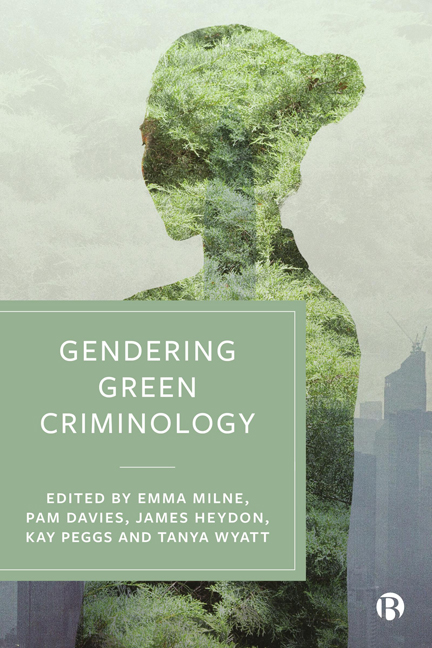4 - Men and the Climate Crisis: Why Masculinities Matter for Green Criminology
Published online by Cambridge University Press: 28 March 2024
Summary
Introduction
There is much for social scientists to examine when it comes to the climate emergency. Indeed, it is urgent that more start doing so – including criminologists. Irrespective of official definitions, can there be any crime greater than anthropogenic climate change – continuing to burn fossil fuels and release greenhouse gases into the atmosphere, while being fully aware of the massive harm this is causing to human populations across the globe, and to all life on earth (White, 2018)? Criminologists can use our knowledge of the causes, impacts and prevention of harmful human behaviour – as well as what can obstruct such solutions – to help advance efforts to mitigate and adapt to climate change, and bring about more just responses to it.
Central to this is understanding how global heating is shaped by social inequalities, including gender. It is becoming increasingly widely recognised that the climate crisis is gendered. There is a growing body of multidisciplinary research demonstrating the disproportionate impacts that climate breakdown is having on women and girls, as well as LGBTQ+ communities, in countries across the globe (Pearse, 2017). This is of much relevance to green criminology, as it means that women and girls are being inordinately affected by green crimes, of which climate change is the ultimate example.
There are a number of reasons for this. One of the biggest manifestations of gender inequality is that women, girls and LGBTQ+ groups tend to have fewer socioeconomic resources, which can make it harder to deal with and recover from natural disasters aggravated by global heating (WHO, 2014). They may also not be encouraged to the same extent as men and boys to develop skills which can aid survival in extreme weather events. For instance, research suggests that in countries which have faced extreme flooding, women have often been more likely to die, in part because they have not been taught how to swim (Sultana, 2014). The fact that women are more likely to have caregiving responsibilities can make it harder to escape disasters, as it means they are often left having to take care of others in addition to themselves, such as children or older family members (Pearse, 2017).
- Type
- Chapter
- Information
- Gendering Green Criminology , pp. 53 - 71Publisher: Bristol University PressPrint publication year: 2023

